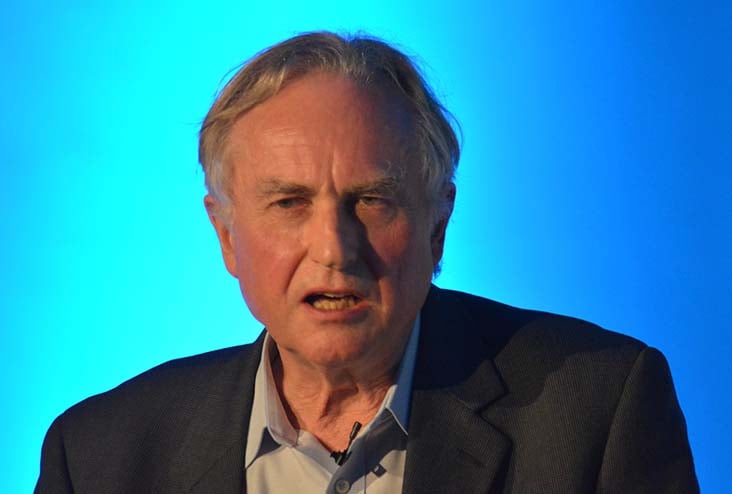Richard Dawkins has made a career out of condescension. For decades, he has belittled those who believe in something beyond the material world, ridiculing religious faith as though it were a disease rather than a fundamental part of human existence.
Now, in a rather stunning display of hypocrisy, he has turned his venom toward Donald Trump, condemning him for his stance on Ukraine. In a recent post on X, Dawkins sneered, “Among the least likeable of human beings are bullies, and those who toady to them. Trump—Putin’s Poodle—manages to combine both: his arrogant bullying of Zelensky, in the service of his barfworthy toadying to the Russian bully.”
This from a man who has spent his life doing exactly what he now decries—bullying and browbeating anyone who refuses to conform to his worldview.
Dawkins doesn’t debate; he derides. He doesn’t challenge beliefs; he mocks those who hold them. He revels in the destruction of faith. His arrogance is not the confidence of a man in pursuit of knowledge, but the smugness of one who assumes he has already found it. Anyone who disagrees is beneath him. And now, he turns that same contempt toward foreign policy, pretending to grasp the nuances of international conflict with the same blind certainty he applies to metaphysics.
Dawkins’s entire brand is built on ridiculing belief. His God Delusion was a gleeful demolition job, a book written not to understand but to undermine. His 2012 tweet, “Mock them, ridicule them in public,” was a call to arms against the religious, an open endorsement of public shaming as a strategy. His obsession with stamping out faith has led him to compare raising a child in a religious household to child abuse, to dismiss scientists who hold religious beliefs as frauds, and to declare entire cultures intellectually inferior for embracing belief. That is bullying in its purest form. Yet here he is, recoiling in horror at the thought of Trump “bullying” Zelensky.
And what does Dawkins know about the war in Ukraine? Not much, I suggest, beyond the mainstream media soundbites he so uncritically regurgitates. Like so many smug, self-satisfied intellectuals, he assumes the issue is black and white—Russia is the aggressor, Ukraine is the righteous underdog, and anyone who questions the West’s unlimited support is a Putin shill.
But has Dawkins ever examined the reality of Ukraine’s government? Has he considered that Zelensky, the man he fawns over, has banned opposition parties, shut down media outlets, and overseen a country riddled with corruption? That his government has jailed critics, attacked the Orthodox Church, and implemented laws that would make even the most authoritarian leaders blush? Does Dawkins know that Ukraine was considered one of the most corrupt nations in Europe long before this war? Of course not. Because to know these things would require research, curiosity, and—most dangerously for a man like Dawkins—the humility to admit that he might not know everything. To be clear, I am not here to defend Vladimir Putin, a dictator who is no ally of the West. Instead, I am here to highlight some inconvenient truths that Dawkins may prefer to ignore.
The New Atheism that Dawkins spearheaded promised an age of reason, a world where faith would fade under the harsh light of science and logic. Instead, it crumbled under the weight of its own arrogance. The movement didn’t just challenge religion; it mocked those who adhered to it, alienating the very people it claimed to “enlighten.” Dawkins and his allies—Christopher Hitchens, Sam Harris, and Daniel Dennett—were not satisfied with merely debating believers. They regarded them as intellectually inferior, as if faith were not the result of deep philosophical and existential inquiry but a clear indication of ignorance.
More than any of them, Dawkins embraced this air of superiority. His debate performances were filled with self-congratulation disguised as reasoned discussion. Whether it was his condescending tone toward Cardinal George Pell in 2012 or his outright dismissal of John Lennox in the 2007 documentary The God Delusion Debate, Dawkins showed more interest in showcasing his own disdain than in engaging with ideas—always equipped with a smirk, an eye-roll, and the unshakeable confidence of a man who thought he had nothing left to learn. He never grasped that condescension is a losing strategy. It may work in a lecture hall, where students fear the professor’s disapproval. But it fails in the real world, where people do not respond well to being told they are idiots.
This brings us back to his recent tweet. As I show in this Sky News column, Trump gets a lot right about Ukraine. At the very least, he acknowledges that war is not a simplistic morality play, that supporting Ukraine comes at a cost, and that the United States cannot bankroll Zelensky’s government indefinitely. Dawkins, on the other hand, regurgitates the most predictable, reductionist narrative—one in which questioning endless funding for a notoriously corrupt regime is tantamount to groveling before Putin. That is not the stance of a critical thinker. That is the stance of a man utterly convinced of his own righteousness, someone who mistakes his gut reactions for absolute truth.
Despite his brilliance in biology, Dawkins’s intellectual arrogance blinds him to the reality that the world is not as neatly structured as his theories suggest. The Ukraine war is not a debate stage where he can dismantle an inexperienced debater with a well-timed quip. It is a brutal, grinding conflict with catastrophic consequences.

Leave a Reply